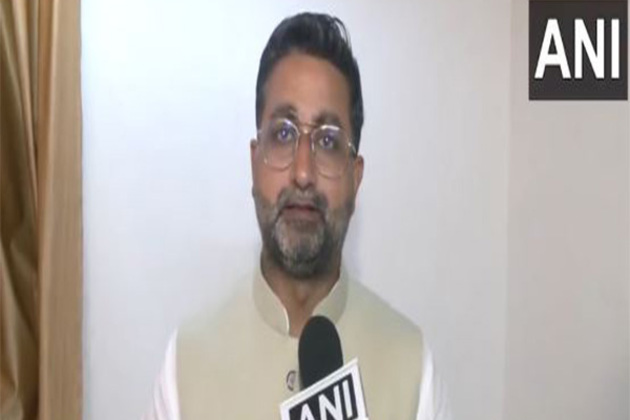'No-one wants to go through this again': how disaster-stricken residents in northern NSW are preparing for Cyclone Alfred
The Conversation
06 Mar 2025, 23:56 GMT+10

It's been three years since floods pummelled the Northern Rivers region of New South Wales. Now, Cyclone Alfred is heading for the region, threatening devastation once more.
On Thursday night and Friday morning, the NSW State Emergency Service asked residents in parts of the Northern Rivers to evacuate. Rain associated with Cyclone Alfred was expected to cause rapid river rises and extensive flooding.
As you'd expect, many Northern Rivers residents feel very apprehensive right now. No-one wants to go through this again.
I know of a woman who, just last week, had painters doing final repairs to her home after it flooded in 2022. Other people can't afford to repair their homes at all.
Damage from the last floods extends beyond the material. Many people in the Northern Rivers are still dealing with mental health problems such as anxiety, depression and PTSD after the last disaster.
Still, people are preparing for Cyclone Alfred's arrival - and drawing lessons from the 2022 floods in the hope of a better outcome this time.
I have 20 years' experience working on climate change adaptation and disaster risk management. My research focus includes the Northern Rivers, where I live. Last year, a study I led examined community collaboration across the region in response to disasters.
The Northern Rivers is located in the NSW northeast and is drained by three major rivers: the Richmond, Tweed and Clarence. The city of Lismore is one of the most flood-prone urban centres in Australia.
As my colleagues and I have previously written, the 2022 flood in Lismore and surrounds surprised even the most prepared residents.
Floodwaters in Lismore reached more than two metres higher than the previous record. Shocked residents were left clinging to their roofs. Businesses moved their stock to higher ground, but it was still destroyed. Houses above the so-called "flood line" were inundated.
Warning systems proved inadequate, and emergency agencies were overwhelmed. More than 10,800 homes were damaged.
Landslides and boulders fell on homes and roads, leaving people trapped and isolated for up to six weeks. Others could not access cash, petrol, communications, food, schools, carer services and medical assistance for long periods.
The 2022 floods were by no means the first disaster to befall the Northern Rivers. The region also flooded in 2017. In 2019 the region, like much of Australia, was deep in drought. The Black Summer bushfires hit in 2019-20, and Covid-19 struck in 2020. Parts of the region suffered bushfires in 2023.
Now, we are facing Cyclone Alfred.
The scale of the 2022 floods forced many residents to confront a harsh reality: in a disaster, emergency services cannot always help. Sometimes, people must fend for themselves.
That realisation prompted a growing community-led resilience movement. As Cyclone Alfred approaches, that network has swung into action.
Since 2022, community-resilience groups have emerged in each local government area across the region. The groups comprise, and are led by, community volunteers.
In my local government area, Byron Shire, there are 13 community resilience groups. I co-lead my local group.
We work with local organisations, government agencies and emergency services to help the community before, during and after a disaster. The local council convenes regular meetings between all these organisations.
My research shows strong information flows are crucial in disaster preparedness and recovery.
Since the Cyclone Alfred threat began, my community group has received regular updates from the SES on matters such as locations of sandbags and sand, the latest weather information advice, and when evacuation centres will open.
We also have an established a network of contacts who live on streets vulnerable to flooding. We pass on relevant information to other residents via Facebook and a WhatsApp group. In the past day we have been exchanging information such as whether flood pumps are working and the extent of beach erosion.
The flow of information is two-way. Byron Shire's community resilience network is chaired by the local council, and has links to emergency management - the "lights and sirens" people. In this way, community knowledge and contributions are recognised and valued by decision-makers and other officials.
In recent days our group has fed advice up the chain to emergency services, such as the location of elderly and vulnerable people who may need help to evacuate.
Byron Shire Council has also loaned portable Starlink satellite dishes to some community-resilience groups. These devices provide essential and communication if phone and internet services fail in a disaster.
On a broader level, the Bureau of Meteorology is producing regular video updates about Cyclone Alfred in clear, plain language. This is helping to communicate the risks widely and give people the information they need.
Community resilience groups also seek to adopt a proactive, rather than reactive, approach to disasters - such as helping residents prepare for the next flood event.
This can be challenging. Many people and organisations in the region have understandably been focused on recovery after the 2022 floods. It can be hard to do this while also preparing for the next disaster.
And sometimes, people don't want constant reminders of the potential for flooding. Some people just want to move on and think about something other than disaster.
If Cyclone Alfred brings destruction to the Northern Rivers, community resilience groups will play a big role in supporting health and wellbeing. Not everyone accesses formal mental health support after disasters. Communities and neighbours looking out for each other is crucial.
As I write, the Northern Rivers is starting to lose power and internet access. Winds are wild and rain lashed the region all night.
As climate change worsens, all communities must consider how they will cope with more intense disasters. The model of community-led resilience in the Northern Rivers shows a way forward.
There is still much work to do in the region. However, our experience of compounding disasters means we are well along the path to finding new ways to support each other through extreme events.
Read more: Lismore faced monster floods all but alone. We must get better at climate adaptation, and fast
 Share
Share
 Tweet
Tweet
 Share
Share
 Flip
Flip
 Email
Email
Watch latest videos
Subscribe and Follow
Get a daily dose of Australian Herald news through our daily email, its complimentary and keeps you fully up to date with world and business news as well.
News RELEASES
Publish news of your business, community or sports group, personnel appointments, major event and more by submitting a news release to Australian Herald.
More InformationInternational
Section3,000 more active-duty troops sent to US-Mexico border
WASHINGTON, D.C.: The U.S. is sending about 3,000 more soldiers to the U.S.-Mexico border as President Donald Trump pushes to stop...
Members allowed to switch as Medicaid provider loses accreditation
ANNAPOLIS, Maryland: Maryland's largest managed care organization for Medicaid recipients has had its accreditation suspended, prompting...
US aircraft carrier in South Korea after North Korea's missile tests
SEOUL, South Korea: A U.S. aircraft carrier reached South Korea over the weekend, shortly after North Korea test-fired cruise missiles...
Marking a first, Firefly Aerospace's Blue Ghost lands on the moon
WASHINGTON, D.C.: Firefly Aerospace has achieved a major milestone in private space exploration, successfully landing its Blue Ghost...
NASA launches satellite to map moon's water resources
CAPE CANAVERAL, Florida: This week, a small NASA satellite was launched into space from Florida to find and map water on the moon....
Japan’s birth rate hits record low amid aging population
TOKYO, Japan: The number of babies born in Japan fell to a record low of 720,988 in 2024 for a ninth consecutive year, the health ministry...
Sydney
SectionBlue Mountains police seek public help in December 2024 fatality
BLUE MOUNTAINS, NSW, Australia - The New South Wales Police Force is appealing for public assistance in their ongoing investigation...
Kevin Roy shoots 62, leads Puerto Rico Open by one
(Photo credit: Reinhold Matay-Imagn Images) Kevin Roy fired a 10-under-par 62, the lowest round of his career, to capture the first-round...
Big Ten tournament roundup: Indiana, Michigan advance to quarters
(Photo credit: Grace Hollars/IndyStar / USA TODAY NETWORK via Imagn Images) Ninth-seeded Indiana scored 10 straight points in the...
'No-one wants to go through this again': how disaster-stricken residents in northern NSW are preparing for Cyclone Alfred
It's been three years since floods pummelled the Northern Rivers region of New South Wales. Now, Cyclone Alfred is heading for the...
Match officials declared for India-New Zealand title clash for Champions Trophy
Dubai [UAE], March 6 (ANI): The International Cricket Council (ICC) on Thursday announced the match officials for the ICC Champions...
"Not right to say such things, India and Muslim community are with Shami": UP Minister Danish Azad Ansari
Lucknow (Uttar Pradesh) [India], March 6 (ANI): Uttar Pradesh Minister Danish Azad Ansari on Thursday said that it is not right to...












